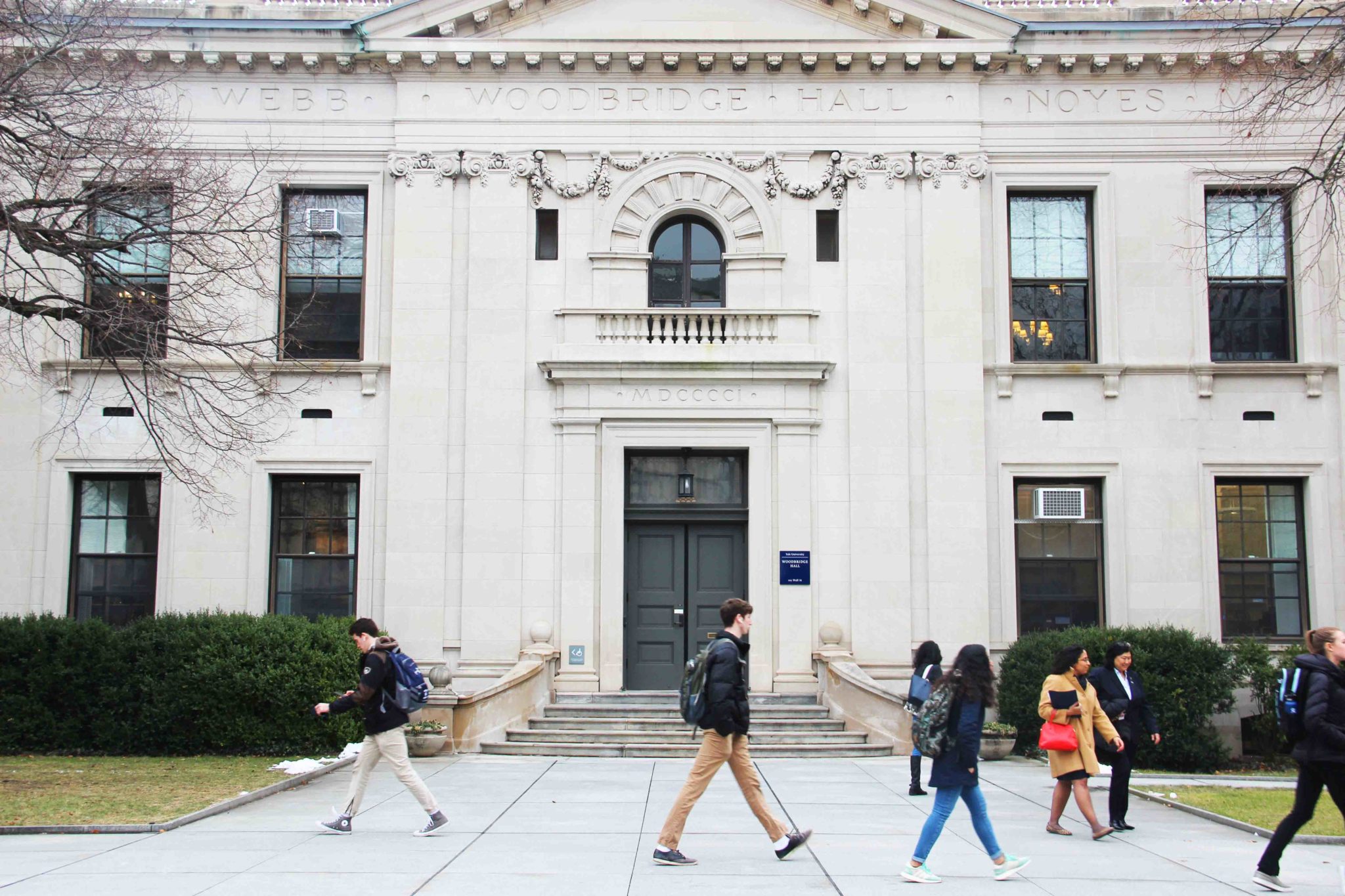
Yale has recruited 65 new diverse faculty members since 2015 as part of the Faculty Excellence and Diversity Initiative, launched during a period of heated discussions about race on campus.
The $50 million push for a more diverse faculty began in November 2015 after a series of high-profile faculty members of color left Yale for peer institutions. In a facultywide email on Tuesday, University Provost Benjamin Polak and Deputy Provost for Faculty Development and Diversity Richard Bribiescas announced that 15 new faculty appointments had been made in the last year as part of the initiative. Though this figure is slightly below that of previous years — the University made 24 new faculty appointments in September 2016 and another 26 in October 2017 — Polak and Bribiescas said the overall number of recruitments supported by the initiative has “exceeded … original aspirations.”
“Three years ago, we launched this initiative not knowing what the uptake would be,” Polak said in an interview with the News. “But the level of engagement across the University has been fantastic. … For the past three years, we have brought 65 new faculty, which is roughly equivalent to the size of the largest [Faculty of Arts and Sciences] department or a size of a pretty large professional school.”
Between 2015 and 2017, the percentage of newly hired female ladder faculty members in the Faculty of Arts and Sciences and the medical school increased from 40 percent to 49 percent, according to the University’s Faculty Development & Diversity website. During that same time, the percentage of hired faculty members identifying as Asian-American, black, Hispanic, Native American or international saw an uptick of just 4 percent, from 34 to 38 percent.
The initiative also sponsors “pipeline programs” to fund research and professional development workshops for graduate students. Twenty-five graduate students will benefit from the program this year, according to the email.
Polak said the initiative also partners with the Center for Teaching and Learning and the President’s Committee on Diversity and Inclusion to host workshops for local students led by members of underrepresented groups in STEM and other fields.
To avoid “singling out” certain faculty members and graduate and professional school students, Polak and Bribiescas declined to further specify the beneficiaries of the initiative.
Associate Provost Megan Barnett LAW ’97 told the News that while there is no formula to distributing the funding across different schools and departments, the Provost’s office meets with the deans of every school every month to discuss potential hires.
Participants in the Yale Corporation’s institutional assessment last spring underscored the need for recruitment and retention programs for diverse faculty. Additionally, at the University-wide town hall meeting last February, students and faculty members called for increased transparency and greater efforts to recruit faculty members from a multitude of backgrounds. Though many faculty support increasing the diversity of their ranks, School of Medicine’s Chief Diversity Officer Darin Latimore said many faculty members still balk at the practical implications of actively seeking out and hiring professors from different backgrounds.
“They think I’m asking to [dumb] down excellence because I’m talking about diversity and excellence, but I’m not,” Latimore said.
At the town hall, Stephen Gaughran GRD ’21, chair of the Academic and Professional Committee at the Graduate Student Assembly, called for increased transparency regarding the progress of the initiative.
In a statement to the News, Dean of Yale Divinity School Gregory Sterling said extra funding from the 2015 initiative made it “possible to be more aggressive” in diversifying the faculty. While recruiting the best faculty members is always challenging — especially when they come from underrepresented groups — extra funding from diversity initiatives are always helpful, Sterling said.
Two weeks ago, the University earmarked another $26 million for the purposes of faculty salary adjustment and recruitments.
Lorenzo Arvanitis | lorenzo.arvanitis@yale.edu







